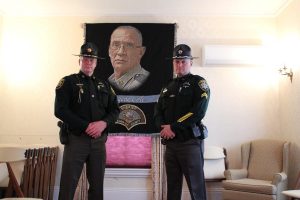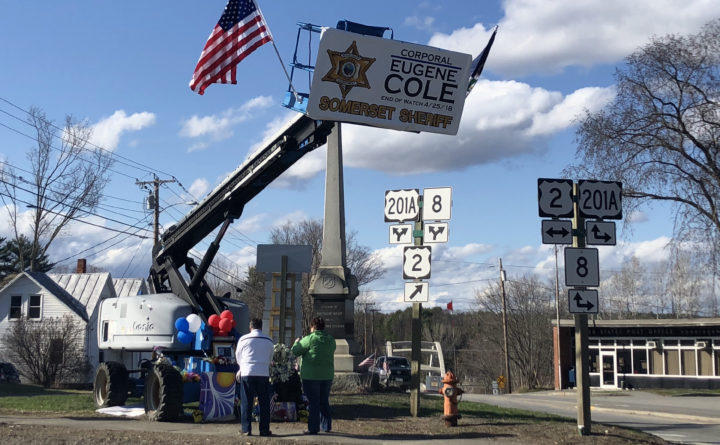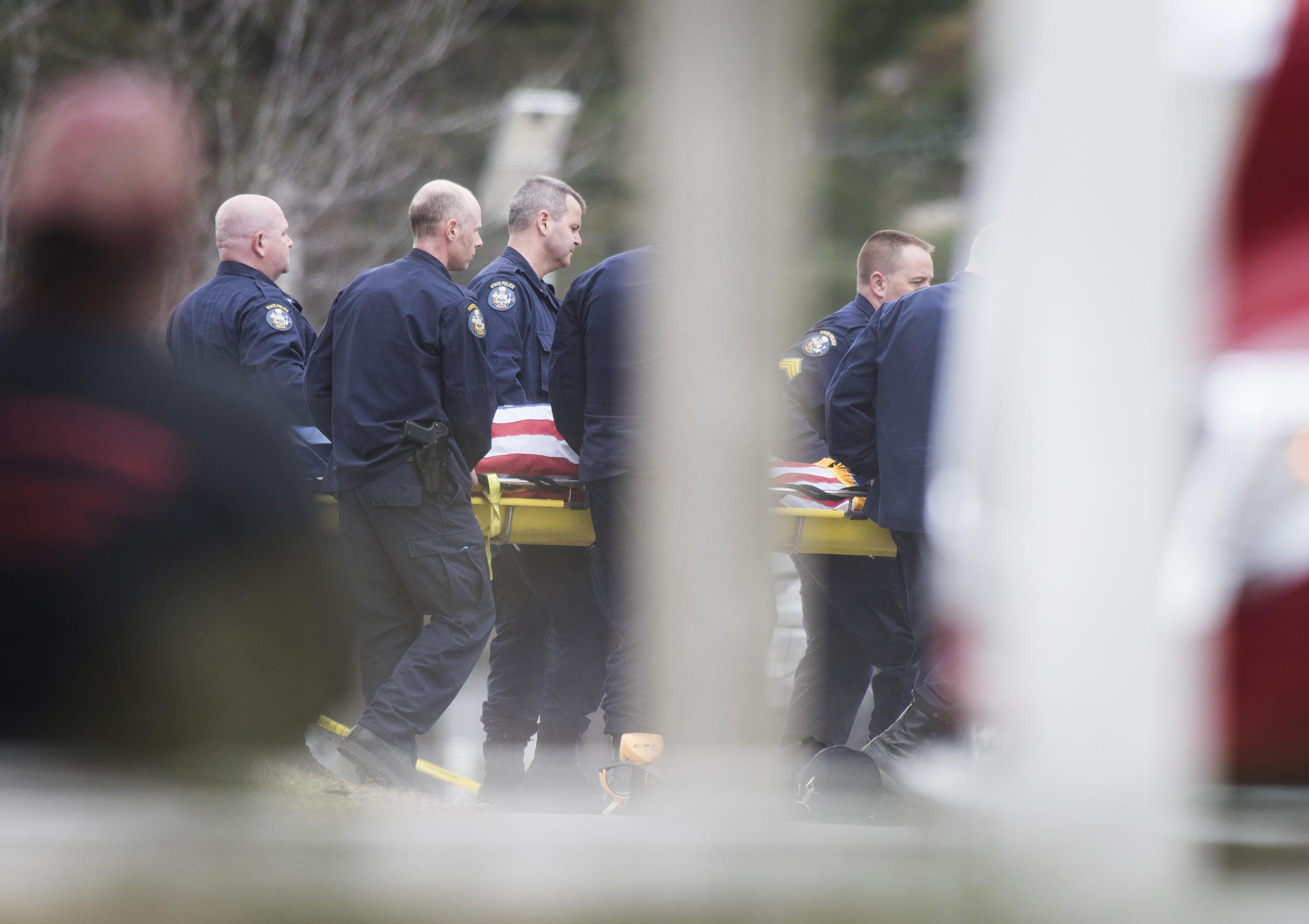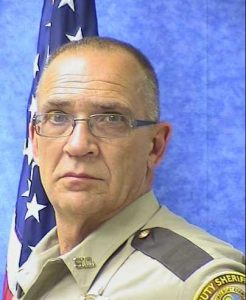Corporal Eugene Cole Was Dedicated To De-Escalation Above Deadly Force
The body of Somerset County Sheriff’s Deputy Eugene Cole is brought out and loaded into a medical examiner’s van on Wednesday, April 25, 2018. Photo by Kevin Bennet for Maine Public
Somerset County Corporal Eugene Cole was trained in de-escalation tactics, and he’d used them successfully during a police standoff two years ago. Cole considered deadly force a last resort, but it was a tool he recognized police needed to have. Cpl. Eugene Cole was shot and killed on April 25. The suspect, John Williams, was caught after a four-day manhunt. Maine Public’s Fred Bever spoke to Cole after the standoff two years ago and reflects back on his life and legacy.
That day in December 2016, an armed man from the small crossroads town of Norridgewock showed up at the town’s local Cumberland Farms, brandishing a gun and, once police showed up, asked that they shoot him. Corporal Cole and two state police negotiators tried to defuse the situation, establishing a perimeter and talking to the man as he paced the store’s parking lot.
“Some of the stuff wasn’t even making any sense, but he was just yelling that he wanted them to shoot him.” Cole recounted the events in an interview last spring. He said the negotiators tried to distract the man, and at one point, he took their suggestion that he put down the gun to talk. He put it in the hood of a truck, but within reach, Cole said.
“I saw the opportunity. I told my two guys the two guys behind me, I said ‘cover me’. I could go low: I knew he could not see where I was at that time. And then I just did a peek out over the hood so I saw right exactly where the gun was, and then back down and back up again.”
Cole secured the gun, he says. The man started to turn toward him – and Cole used his taser on him. The man went down, Cole took him into custody, and the standoff ended. Cole said circumstances and the skills and training of the negotiators came together with his own that night in a way that ended with nobody hurt.

Two officers from the Sagadahoc County Police Department, watching over the casket of Eugene Cole at the Smart and Edwards Funeral Home in Skowhegan. Photo by Robbie Feinberg for Maine Public
But it easily can go the other way, he said, and when threatened, police are justified in using deadly force. “We shoot until the threat is over. That’s how we’re trained.”
Yet while he’d used his taser on more than one occasion, Cole said he’d never shot a firearm at a suspect. And he emphasized that he tried to approach all of the region’s citizens as human beings, no matter what side of the law they found themselves on. That’s in keeping with what colleagues say was his humane approach to law enforcement.
“He was a man who had just basic empathy for people,” said Hannah Longley. Longley is a clinical social worker. She’s worked with Cole and other officers in crisis intervention training classes designed to improve outcomes in confrontations with people who have mental health diagnoses. “And so it just came naturally to him when someone was in crisis to be able to connect on a deeper level, to build a rapport.”
It helped that Cole, who entered the force at the relatively late age of 49. He had deep roots in the communities that made up his largely rural beat. Dan Summers, now the chief of police in another jurisdiction, used to be a local cop working in a small city that fell within the county sheriff’s territory several years ago. He says many people who interacted with law enforcement – including criminal suspects, would clam up and ask for Cole.
“Just because they knew him, they felt comfortable about him. You may have another officer who may be investigating a case involving a certain individual, but because they’re not Deputy Cole, they wouldn’t feel comfortable talking about the case, they wouldn’t feel comfortable unless Deputy Cole was there.”

Mourners gather at a makeshift memorial for Cpl. Eugene Cole on Saturday, April 28, 2018. Photo by Callie Ferguson for the Bangor Daily News
It’s not clear whether Cole might have been able to bring de-escalation techniques to bear in the confrontation that led to his death. The exact circumstances have yet to be established. But in the earlier interview, he made no bones about the stakes of his profession.
“When we go to work, we put on a bullet-proof vest and a side-arm. Why would you have to put a bulletproof vest on? So this is a profession that we’ve chosen, and we know the risk when we go out. So like I said, we all want to go home at night.”
Corporal Cole was 62 years old. His memorial service will be on Monday, May 7, in Bangor, Maine.


